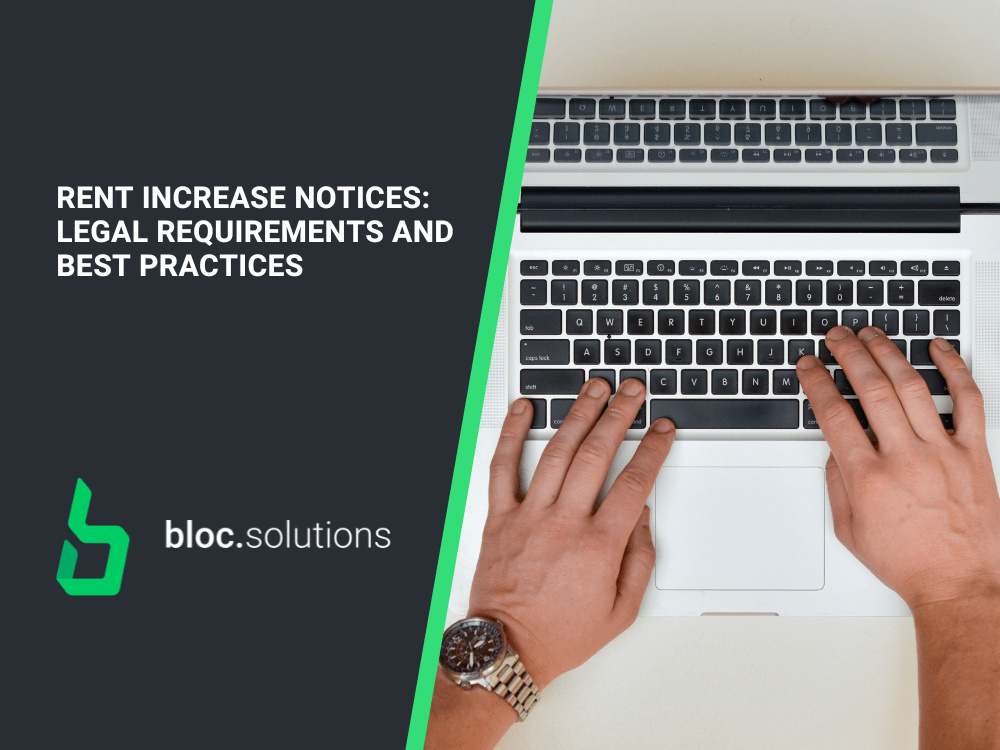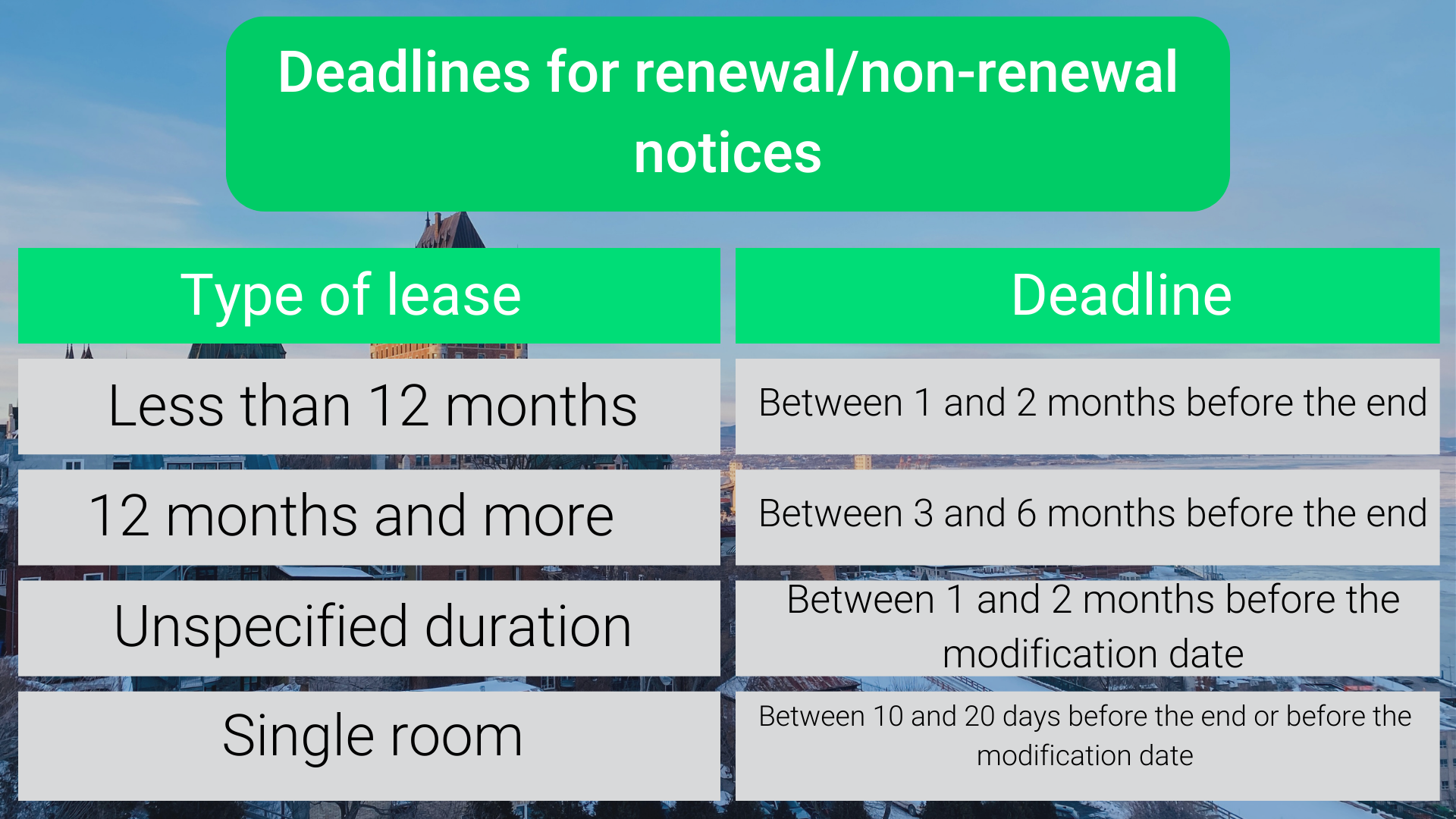Rent Increase Notices: Legal Requirements and Best Practices

When and How to Send a Rent Increase Notice?
A landlord must wait until sending the lease renewal notice to increase the rent, and this must be individually transmitted to each of the tenants listed on the lease. The notice must be in writing and accompanied by an acknowledgment of receipt to be valid.
“The notice must be written and clearly indicate the proposed modifications for the lease renewal, whether it concerns the rent or other terms of the lease such as the lease duration or the removal of the right to use the yard or parking. The notice must also specify the tenant’s deadline to refuse the requested modifications, which is 1 month from the receipt of the notice. It must be dated and signed by the landlord (or their representative).” (Administrative Housing Tribunal)
Deadlines to Respect for Sending Your Rent Increase Notice

What Requirements Must the Written Notice Meet?
The written notice must contain certain important information and follow a specific structure to be valid.
Elements to Include in the Notice:
- Name of the tenant(s)
- Address of the rented dwelling
- Current rent amount
- New rent amount, the amount of the increase, or the percentage increase
- Duration of the new lease
- Any other modifications to the lease (e.g., access to the yard, included parking, etc.)
- The tenant’s deadline to accept or refuse the increase (usually 30 days after receipt). If the tenant does not respond within the given timeframe, it is considered an acceptance of the rent increase.
To ensure a compliant notice, it is recommended to use the form provided by the Administrative Housing Tribunal.
It is also possible to meet the strict requirements of the Tribunal by using the electronic lease renewal notice offered by the Bloc Solutions platform. The notice includes a specific section to record the rent increase and is sent with an acknowledgment of receipt.
What are the Rights of the Tenant?
Although the increase is in compliance with the law and the recommendations of the Administrative Housing Tribunal, the tenant still has the right to contest the increase.
The tenant has three response options:
- Accept the lease renewal with its modifications
- Refuse the proposed modifications and renew the lease
- Not renew the lease and leave the dwelling at the end of the lease
Note that a tenant living in a building constructed five years ago or less or whose residential use results from a change of use within the last five years cannot contest a rent increase (see section F of the lease). If they refuse the increase, they should then move out.
If you have taken the necessary precautions to calculate the rent increase and it is fair, reasonable, and justifiable, there should be no issue. Be open to potential questions from the tenant. If the tenant decides to contest the increase, do not get discouraged. Other solutions are available to you. Refer to the article “What to Do If the Tenant Refuses a Rent Increase?”.
Opt for the Bloc Solutions platform to ensure a compliant rent increase notice is sent to tenants. Save time, eliminate the risk of error, and simplify your rental management now!
